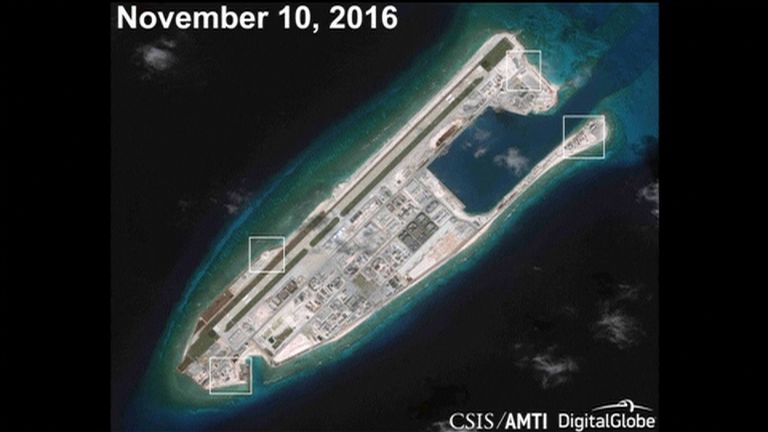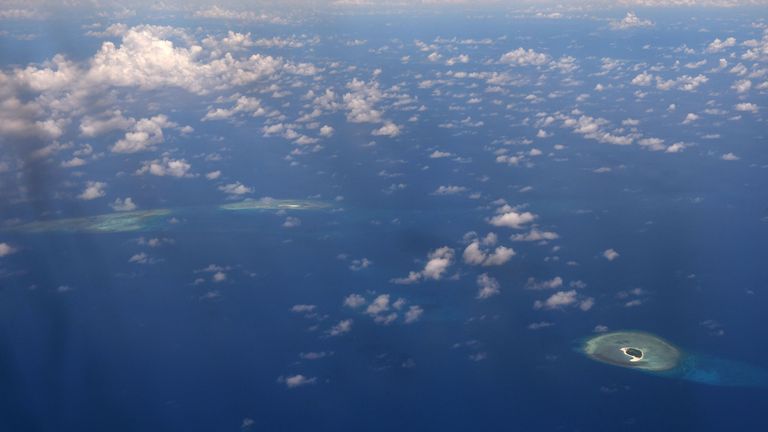China has accused the US of “stirring up tension” after America’s secretary of state said it would take a tougher stance on Beijing’s “bullying” in the South China Sea.
Territorial disputes over small island chains in the region have been going on for years between China and neighbouring countries such as Vietnam, the Philippines and Malaysia.
US Secretary of State Mike Pompeo tweeted on Monday: “We are strengthening U.S. policy on South China Sea maritime claims, according to international law, in rejection of Beijing’s intimidation, bullying, and claims of maritime empire.”
He added: “Beijing’s claims to offshore resources across most of the South China Sea are completely unlawful.”
China has built military outposts on some of the islands and reefs in the South China Sea, and the area is estimated to have vast untapped reserves of oil and gas.
It is also a key international shipping route and a rich fishing ground.
The Chinese embassy in Washington hit back at Mr Pompeo, saying in a statement: “The United States is not a country directly involved in the disputes. However, it has kept interfering in the issue.”
It added: “Under the pretext of preserving stability, it is flexing muscles, stirring up tension and inciting confrontation in the region.”
China says it has a long historical claim on the disputed territory but some of it, such as the Spratly Islands archipelago, is much closer to its southeast Asian neighbours and more than 700 miles from the Chinese mainland.
Mr Pompeo’s statement said the US now considers nearly all maritime claims outside China’s recognised waters to be illegitimate.
He also rejected the legality of the expansive “nine-dashed line” that purports to mark out China’s claim over huge swathes of the region.
America’s previous stance was to insist on UN-backed arbitration.
Japan has also waded into the row after a government report this week accused China of “relentlessly” trying to “change the status quo” by sending ships close to the Japan-administered Senaku Islands – whose ownership is also disputed between China, Japan and Taiwan.
It comes amid reports that Britain will send one of its new aircraft carriers, the £3bn HMS Queen Elizabeth, to the region next year to take part in exercises with the US and Japan. The UK’s Ministry of Defence, however, said a decision had yet to be made on any deployment.
Experts say America’s new approach on the South China Sea may embolden the countries wrangling with Beijing over maritime disputes.
Zhu Feng, director of a South China Sea studies centre at Nanjing University, said the US has “made itself into a judge or arbiter” and “it will bring new instability and tension”.




